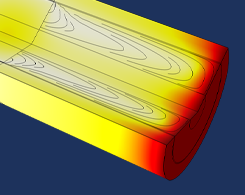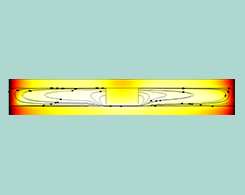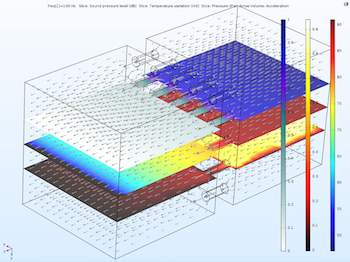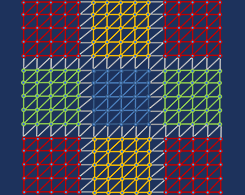All posts by Jan-Philipp Weiss

Strategies to Counter Small Automatic Time Steps
When solving a model, you may encounter a varying time step and discretization order, or NLfail or Tfail could be greater than 0. Use these strategies to improve the efficiency of the simulation.

Automatic Time Step and Order Selection in Time-Dependent Problems
Here’s an intro to the time-dependent solver log in COMSOL Multiphysics® and an in-depth look at the theory behind discrete time-stepping schemes and optimal time steps and discretization orders.

Using the Domain Decomposition Solver for Thermoviscous Acoustics
Learn how to use the Domain Decomposition solver, a memory-efficient iterative algorithm with inherent parallelism on the geometric level, in COMSOL Multiphysics®.

Using the Domain Decomposition Solver in COMSOL Multiphysics®
The Domain Decomposition solver is a memory-efficient iterative algorithm that works best for large modeling problems that can’t be solved with other direct or iterative methods.

Hybrid Computing: Advantages of Shared and Distributed Memory Combined
Shared memory platform + distributed memory platform = hybrid computing. Learn about the various aspects of hybrid computing and modeling in this installment of our blog series.
